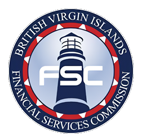List of Brokers with FSC (BVI) Regulation
The BVI Financial Services Commission is the autonomous regulatory authority responsible for the regulation, supervision, and inspection of all British Virgin Islands financial services, including insurance, banking, business trust, corporate management, mutual fund business, company registration, limited partnership, and intellectual property.

| Established | : | 2001 |
| Country | : | British Virgin Islands |
| Website | : | https://www.bvifsc.vg |
| Total Brokers | : | 13 |
Scroll for more details
FAQ
What does BVI regulated mean?
Being regulated by the BVI or the BVIFSC means operating under the standards of a British Virgin Islands financial regulator. BVI forex brokers typically enjoy several tax breaks that enables firms to enjoy huge profits and offer lucrative offers to attract clients.
What are BVI rules?
The country enforces its rules through the Securities and Investment Business Act of 2010, which was created alongside the BVIFSC. The regulatory guidelines are quite simple and do not go according to the global regulatory frameworks. Registered companies under the BVIFSC are not required to hold any amount of minimum capital, nor keep client funds in segregated accounts.
Still, financial dealings and transactions are monitored by the BVIFSC. Regulated brokers in British Virgin Islands are also required to follow several regulatory guidelines to avoid insider trading, prevent financial scams, and other aspects that may harm the BVI economy.
What is the main purpose of BVI?
To safeguard the economic interests of British Virgin Islands by upholding its integrity as a well-regulated international finance center. In general, the BVIFSC has purposes to:
- Protect the interests of the general public and market participants.
- Ensure industry compliance with the highest international regulatory standards and best business practices.
- Ensure that the nation plays its part in the fight against cross-border, white-collar crime while safeguarding the privacy and confidentiality of legitimate business transactions.
What are the powers of BVI?
By enforcing all financial services regulatory and registry legislation, the BVIFSC has the power to monitor the regulated financial services activity to protect the public against any illegal and/or unauthorised financial services. The agency also has the right to review all financial services and related enforcement legislation and policie to keeping attuned to domestic and international developments affecting the financial services industry.
If you are interested to open an account in one of the brokers in the list above, make sure to try the forex demo account before proceeding to register in the live account.
Additional FAQ
What are the areas of PRA's regulation?
According to the PRA rulebook, there are 3 areas of the PRA regulations. Firms must comply with the regulations depending on which classification they fall into.
- Banking and Investment Rules: for CRR firms (banks, building societies, or investment firms subject to the EU Capital Requirements Regulation) and non-CRR firms (credit unions, building societies, or PRA-designated investment firms not subject to the EU CRR).
- Insurance Rules: for SII firms (insurance firms subject to the Solvency II Directive) and non-SII firms.
- Other rules: for non-authorized persons (persons or firms not authorized by the PRA).
Continue Reading at What are the Top UK Financial Regulators?
What are the forex regulaors in UAE?
Official regulators in the UAE are as follows:
- The Dubai Financial Services Authority (DFSA)
- The Abu Dhabi Global Market (ADGM)
- The Securities Commission Authority (SCA)
- Central Bank of the United Arab Emirates (CBUAE)
It is important to understand that the UAE is divided into two financial areas, namely the Mainland and Free Zones. Brokers who operate in the Mainland are regulated by the SCA or CBUAE. Meanwhile, DFSA and ADGM regulate brokers in the Free Zones, which are designated to encourage foreign investments and allow foreign-owned companies to be located.
Continue Reading at Best Forex Brokers in United Arab Emirates (UAE)
What is the role of CNMV in regulating brokerage in Spain?
The CNMV is responsible for supervising and regulating the financial markets in Spain. It collaborates closely with the European Securities and Markets Authority (ESMA) and applies unified laws for trading in leveraged markets for retail investors, as Spain is a member of the European Union.
Continue Reading at 3 Interesting Facts of Forex Trading in Spain
How to check a broker's regulation?
Here are the steps on how to check if a forex broker is regulated:
- Check the broker's website.
- Visit the regulatory agency's website.
- Contact the regulatory agency.
Continue Reading at How to Avoid Forex Broker Scams
Broker Categories
Minimun Deposit
Payment
Country
Established
Instruments Traded
Features
Trading Platform














